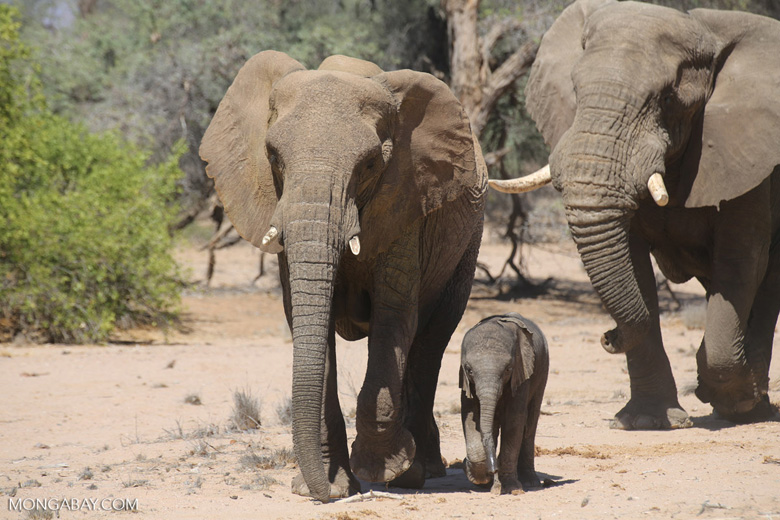- Hong Kong’s system of keeping track of “legal” ivory is full of loopholes, report has found.
- Pre-1989 ivory stocks in Hong Kong should have run out by 2004, report estimates, but over 111 tonnes of ivory remain in markets as of 2014.
- “The profits are too high and the system is too easy to game,” conservationist says.
At a time when U.S. and China have pledged to take steps to end ivory trade in their countries, Hong Kong — one of the largest hubs for illegal ivory — has refrained from making such commitments, and continues to insist that their “legal” ivory markets are strictly controlled.
But according to a recent investigation by WildAid and African Wildlife Foundation, and an undercover video by independent investigators, Hong Kong’s “legal” ivory stockpiles in markets are regularly replenished with illegal ivory obtained from recently poached African elephants.
The report and video shows how the system of keeping track of “legal” ivory is full of loopholes. For example, one ivory trader in Hong Kong revealed in the video how Hong Kong government officials “only record the weight of raw materials and finished products.”
“So I can simply exchange with anything. After I sell an [ivory] item, I can use illegal ivory to make another item to top off my stock again. The government officials have no idea on how to govern,” the trader said in the undercover video.
International ivory trading was banned in 1989. But Hong Kong has allowed domestic sale of ivory of its pre-1989 ivory stocks.
At the time of the 1989 ban, Hong Kong had 670 tonnes of commercial ivory, according to the report, which should have run out by 2004. However, ivory stocks continue to flood the markets. In 2014, for example, over 111 tonnes of ivory remain, the report notes.
Hong Kong government’s Agriculture, Fisheries and Conservation Department (AFCD) maintains that the ivory is strictly controlled by use of instruments such as the “License to Possess”, which needs to be displayed in a “conspicuous position in the keeping premises specified in the lincense.”
However, when WildAid surveyed 94 ivory shops from October 2014 to August 2015, “only one retailer was observed displaying its License to Possess in accordance with the law,” the authors write.
Such flouting of rules, and legal loopholes have increased elephant poaching. For instance, poaching for ivory has decimated Tanzania’s savanna elephant (Loxodonta africana) population, which went from 109,051 animals in 2009 to just 43,330 in 2014 — a 60 percent drop in just five years.
“The profits are too high and the system is too easy to game to think we have any hope of controlling this trade through a bit of paperwork and lax regulations,” Patrick Bergin, CEO of African Wildlife Foundation, said in a statement. “By stopping all ivory trade, Hong Kong’s ivory trafficking industry will lose its disguise and ivory traffickers in Hong Kong will no longer be able to operate with impunity. They, and not our elephants, will become the targets.”


